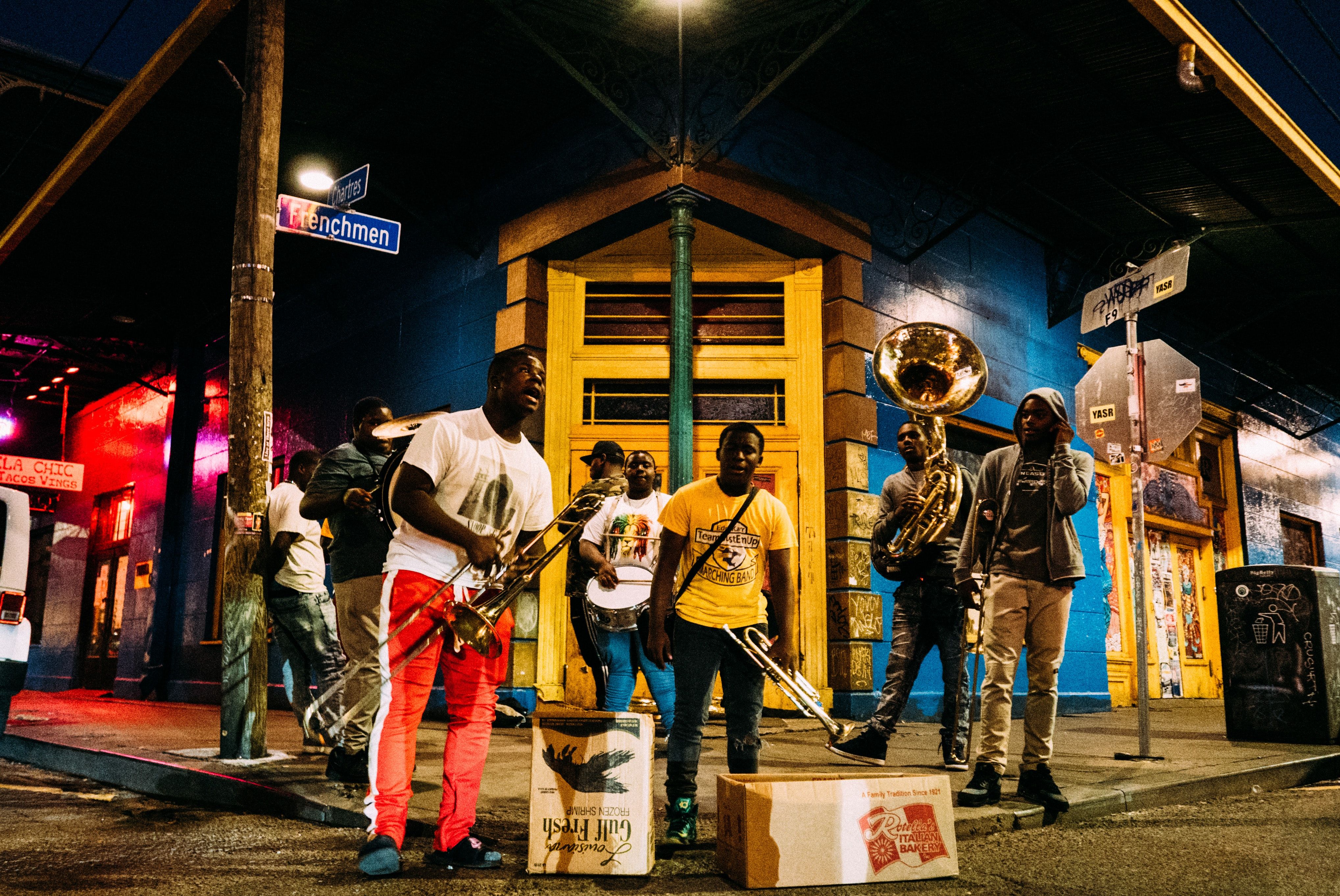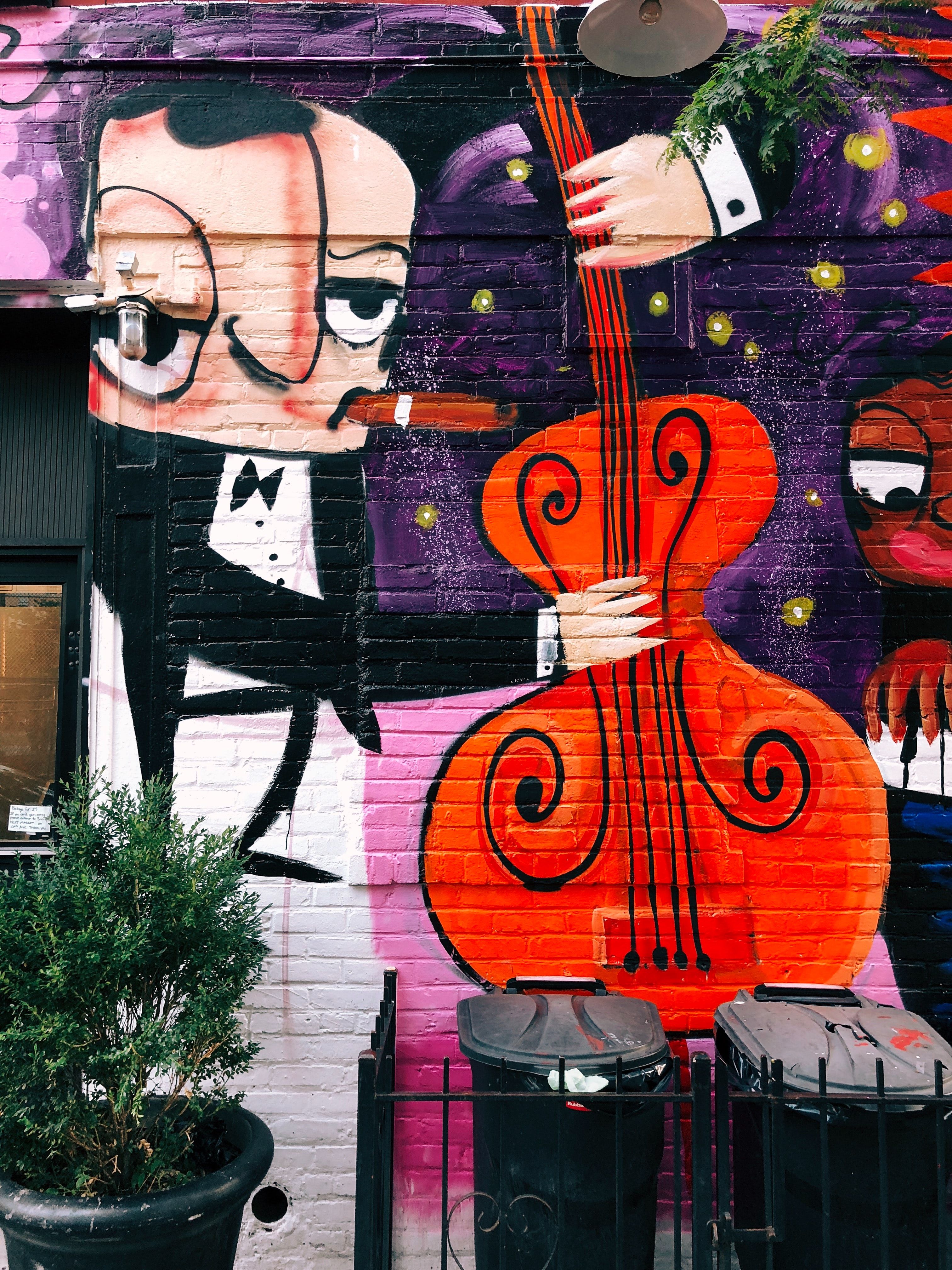
Hard-hitting drumbeats intertwine with mellow piano harmonies. A rhythmic bass keeps the tempo, and funky horns blare as loud as they can, as if they are not only in competition with the other horns, but also competing with the noise of the patrons who fill the room. This is New Orleans, a place where live music is readily available and a part of everyday living. Here, all children learn an instrument, and local bands are deeply admired.
In New Orleans, music is one of the most powerful expressions of art. It is not only the universal language, but it is a part of our history. It connects us, panders to our emotions, and can bring memories to those who have lost their own sense of reality. It can make us extremely happy or extremely sad. Most importantly, it is an endless source of entertainment, with many choices and genres.
Modern musical genres include R&B, rock, and hip hop, and it is likely that none of them would exist without the music that influenced them all: New Orleans jazz music.
The History
Some credit Louis "Satchmo" Armstrong, while others may say that jazz originated with the Original Dixieland Jazz Band. As for Ferdinand "Jelly Roll" Morton, he once claimed, "It is evidently known, beyond contradiction, that New Orleans is the cradle of jazz, and I, myself, happen to be the inventor, in the year 1902."
While all of these people have influenced jazz, there is no real way to know exactly when jazz was founded. But there is one thing that is certain: It was popularized right here in the Big Easy. With the sad sounds of blues being the soundtrack of the Deep South, jazz was a more upbeat, free-spirited, uplifting, and, at times, controversial genre that took off sometime in the early 20th century.
At the time, New Orleans was a diverse city, with influences from a multitude of cultures. The culture that was most musically prevalent during that era was the African American community, who took the brass-band marching music of the inner city and mixed it with a bit of blues and ragtime, creating a smooth yet ironically wild sound. Also referred to as Dixieland music, traditional jazz was dancing music, and it broke all of the rules of what people knew to be contemporary music of the time.

While jazz was popularized in the early 1900s, as with most of our modern music, it certainly got much of its influence from the African rhythms and percussion patterns of rituals performed in Congo Square.
As time progressed, so did jazz. From swing to bebop to cool and smooth jazz, jazz music went on to become an American treasure and has influenced much of the music and culture of today.
Jazz and the Music it Has Influenced
Funk, rock, disco, country, hip hop, and R&B—most modern music has had some sort of impact from jazz. While the influences are undeniable across the board, there are three genres that were most heavily influenced: rock, hip hop, and rhythm and blues (R&B).
Let us start with rock, which gained popularity in the mid-20th century. It is likely that without jazz, rock music would have never existed. Coming from the jazz and rhythm-and-blues era, pioneers like Little Richie and Chuck Berry used elements of jazz to perform what is now considered "rock n roll." While they both had their time in the spotlight, their impact went on to influence the famous rock stars who consumed the spotlight over time. Famous musicians such as Elvis Presley and bands such as Led Zeppelin have obviously been heavily influenced by the jazz and rock musicians who came before them.
David Bowie once said, "Jazz was a music that seriously paralleled rock music for me when I was young. I really felt at home with modern jazz. I wanted to understand how it worked."
The Beatles were another band that famously credited jazz as their biggest influence and inspiration. Those improvisational moments that were shown to us by jazz are still often reflected in rock-n-roll performances.
Next on the list is hip hop. Who would have ever thought that what started as the gritty street rhymes of New York would become today's most popular genre? Like jazz, hip hop began as a music of expression and freedom and was also quite controversial. In fact, it still is.
Taking notes from the jazz tunes before it, hip hop was a genre developed for people who needed to speak about the things that they were experiencing and their communities and who were often quieted by the masses.
Many of the themes of hip hop are similar to those of the earliest jazz. Things like activism, oppression, freedom of speech, social justice, love, and heartbreak can all be heard in today's most famous hip-hop songs.
Finally, influenced by both jazz and blues, R&B is a popular genre, famous for its soul and in-depth lyricism. Like jazz, R&B shares the essence of storytelling through song, using rich lyrics to touch on sensitive topics.
New Orleans brought the world jazz, and jazz has brought us so much more. While it is an American treasure, it is also appreciated all around the world among jazz-lovers from Japan to Germany. Jazz continues to influence the music and culture of today. Without jazz, we would not have many of the genres that we have today. And without the influence of New Orleans, it's possible that jazz would have never existed.

